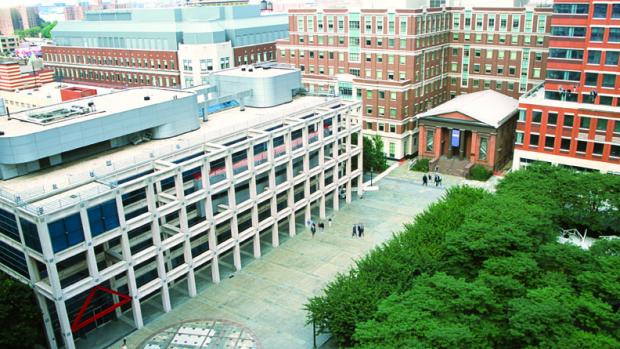Ambitious but Attainable Goals
On Its Way to Loftier Heights, the NYU Polytechnic School of Engineering has received re-accreditation for its undergraduate engineering programs by the Accreditation Board for Engineering and Technology

On September 1, 2015, the NYU Polytechnic School of Engineering received accreditation to grant degrees in the disciplines of Chemical Engineering, Civil Engineering, Computer Engineering, Electrical Engineering, and Mechanical Engineering from the Engineering Accreditation Commission of the Accreditation Board for Engineering and Technology (ABET).
The accreditation also includes all undergraduate engineering degree programs at NYU Abu Dhabi.
At a recent faculty meeting, Dean Katepalli Sreenivasan announced the re-accreditation, expressed pride in that official recognition, and praised the various programs, departments, and faculty for the commitment that had clearly led to ABET’s accreditation.
Sreenivasan did not, however, touch only on past accomplishments. He commented on a number of features that define a forward-looking engineering school. When asked about the commitment to diversity at the school, his response was notably inspiring to all in attendance. He stated in no uncertain terms that we must strive to be both an excellent academic institution and a welcoming and diverse one. “Diversity and excellence are both sides of the same coin,” he said. “Without excellence we can’t build a solid foundation, while without diversity we are turning our back on our civic responsibilities and have no foot in the real world.”
Sreenivasan acknowledges that several obstacles have to be overcome in order to achieve the national ranking he envisions. Still, he intends never to take his eye off the “American Dream,” a term coined by Poly alum James Truslow Adams, who described it as “that dream of a land in which life should be better and richer and fuller for every man, with opportunity for each according to his ability or achievement.” Adams went on, “It is not a dream of motor cars and high wages merely, but a dream of social order in which each man and each woman shall be able to attain to the fullest stature of which they are innately capable, and be recognized by others for what they are, regardless of the fortuitous circumstances of birth or position.”
While accreditation is proof that we are meeting the nationally acceptable standards in providing engineering education, Sreenivasan makes plain that no one at the School of Engineering should settle for merely “acceptable” when “exceptional” is well within our grasp.




